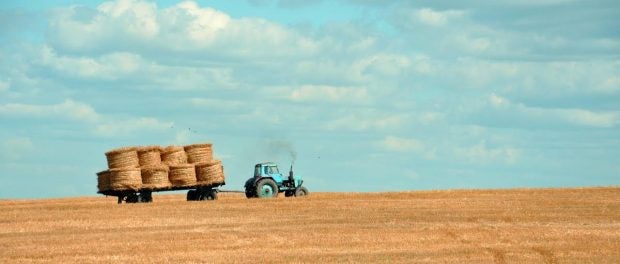Basic Tools Needed to Start a Beef Farm

Forsaking life in the fast lane for the slower pace of the countryside is a pop culture theme for a reason. The idea of taking time to smell the flowers while working the land of a farm of one's own is more than appealing – it's intoxicating.
But as we all know, there's a thick, dark line between fantasy and reality, and the day-to-day of running a successful farm requires a healthy dose of the latter in order to attain the former. If you weren't raised on a farm, but dream of making a living off the land, you'll have to do extensive planning to make it happen.
Why a farm?
It may sound like a basic question, and it is. But it's an incredibly important one. Why do you want to run a farm? Do you want to relax, and enjoy the countryside while working with your hands in a garden, or do you dream of tilling acres of land with a tractor to maximize your crop? Or would you prefer to raise cattle? The answer to this basic question will be the starting point from which you can develop your farming strategy. This will also dictate your finances and accounting, as hobby farms and for-profit farms are categorized differently legally, which will affect everything from taxes to sales. Make sure you know which kind of farm you want, and the amount of work you are willing to put into it.
Identify your Niche
Once you know whether you want to have a hobby farm or run a full-fledged farm business, decide what your niche will be. Do you want to farm animals, or crops? Feed corn, or soya beans? An essential part of identifying your niche will be conducting market research for what you would like to produce. Find out where there is a market for what you want to grow, and learn about any potential problems or issues that could arise that would interfere with selling your produce. For example, if you want to run a lavender farm, but there isn't a market demand for lavender in your locale, you'll need to know where the nearest market for lavender is, whether the market is receptive to imported lavender, and what transportation and storage costs might look like if you were to sell in that particular market.
Map out a Marketing Plan
Now that you know what you want to produce, sit down, crack open the laptop, and get to work on crafting a marketing plan for your farm business. Take into account starting costs, and research sales of your product on the market over the past decade to get a sense of projected sales. Figure out what your budget is for land, for equipment and for your own time, as well as a Plan B for years when things go wrong. Because they will.
Plan for whether you will buy or lease land, or sharecrop. There are many options other than just buying a plot of land and getting to work. Consider starting small, and how you will add to your business as your expertise and capabilities grow. Perhaps you could start leasing land, and renting equipment. How much would that cost, and how long would you do it for before purchasing land of your own? How much financing will you need at each projected stage of building the business? Put it all in your marketing plan.
Find a Mentor
Farming can be a dangerous business, and the necessary skills are often passed down from generation to generation. If you didn't have the luck to have been raised on a farm, you'll need guidance, and lots of it. Find a mentor who runs a farming business that you admire. Ask them if they can mentor you in exchange for help around their farm, or for a share of the crop that you produce. This kind of help will be invaluable, and will help you avoid mistakes and stay safe while you work.
Bring Your Products to Market
After all the hard work of setting up your farm, you've finally produce crops and are ready to bring them to market. If you are selling large quantities of crops, you'll likely be storing them in silos, or taking them to the local co-op for sales. If you have a hobby farm, you might be doing the packaging of your produce yourself, in which case you'll need to create custom labels and other packaging materials. Look for an online sticker maker in order to create custom labels or stickers for your packaging with your logo or product information on it, and choose some attractive boxes or packages to make your product shine. You can find here.
Source: https://www.beginningfarmers.org/farming-101-how-to-start-your-own-farming-business/
0 Response to "Basic Tools Needed to Start a Beef Farm"
Post a Comment